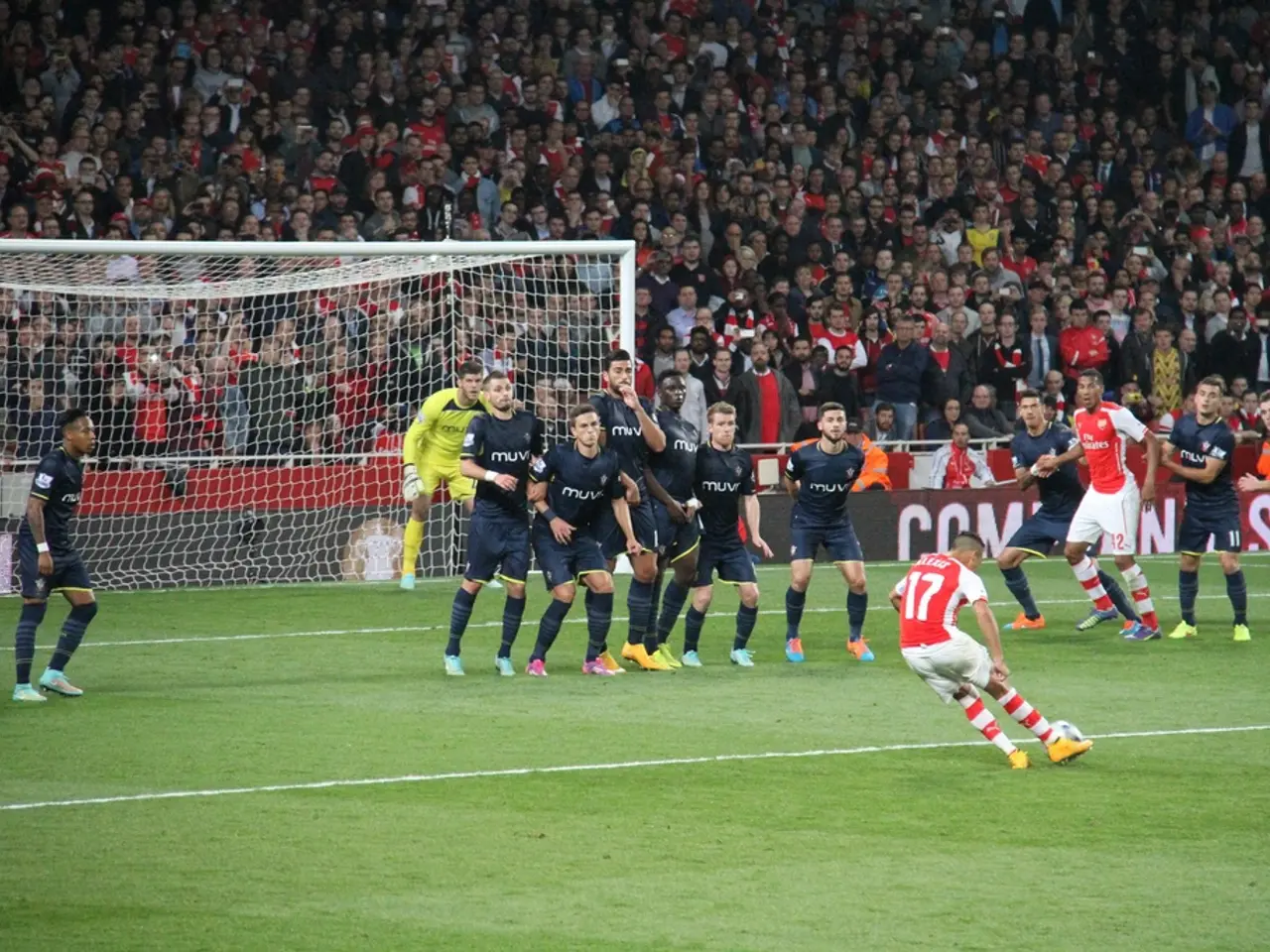Manchester City's staggering setback extends beyond the football field
In an unexpected turn of events, Saudi Arabian football club Al-Hilal secured a 4-3 extra-time victory over Manchester City in the 2025 FIFA Club World Cup. This triumph not only marks a significant sports achievement but also carries political and geopolitical implications.
The victory showcases Saudi Arabia’s growing influence in international football, as the kingdom continues to invest in sports as part of its Vision 2030 strategy to diversify the economy and enhance its global image. Al-Hilal's win against a top European club like Manchester City highlights the kingdom's commitment to becoming a rising sports hub.
For Saudi citizens, the victory serves as a significant morale booster, fostering national pride and unity. The success of a domestic club on a prestigious global stage is a source of immense pride for the nation.
Geopolitically, Al-Hilal's win disrupts the traditional dominance of European football clubs and symbolizes the increasing competitiveness of Middle Eastern clubs fueled by substantial state-backed investment. By defeating a powerhouse like Manchester City, Al-Hilal strengthens Saudi Arabia’s soft power influence in the Middle East and beyond, leveraging sports diplomacy to enhance its geopolitical standing.
The victory at an internationally renowned event held in the U.S. (Orlando) sends a message of Saudi Arabia's expanding footprint in global sports, aligning with its broader ambitions to be a key player on the world stage.
Manchester City, who were one of the favourites to win the tournament, experienced a significant surprise with the loss. The home press was shocked by the outcome, with the BBC writing that they didn't see it coming. The Mirror wrote of a "humiliation" for Manchester City, while the Daily Mail headlined with the "Saudi Shock" and joked that the players tripped over their shoelaces and landed face-first on the ground.
Pep Guardiola, the coach of Manchester City, appeared disappointed after the loss and left the pitch. Guardiola lamented that Al-Hilal punished Manchester City in transition situations, highlighting the Saudi club's clinical counter-attacks as a key factor in their victory.
Inzaghi, lured away from Champions League finalist Inter Milan, stated that Manchester City was like climbing Mount Everest without oxygen, and they did it brilliantly. Bono, the Moroccan goalkeeper for Al-Hilal, left Ilkay Guendogan frustrated with his outstanding performance.
As the Club World Cup quarter-finals move to Orlando, Al-Hilal will face Fluminense, who eliminated Inter (2:0). The Saudi Crown Prince Mohammed bin Salman celebrated the win, further emphasising the strategic importance of sports in Saudi Arabia's global ambitions.
Mansour Bin Zayid Al Nahyan, the owner of Manchester City, sees the club as a means to enhance the glory of the Abu Dhabi ruling family, particularly in the rivalry with Qatar and Saudi Arabia. Qatar hosted the 2022 World Cup and has Paris Saint-Germain, the current Champions League winner, as a prominent European team.
In the aftermath of the loss, Guardiola admitted that the team is going home and stated that it's time for him to rest and organize his thoughts for the new season. A humbled Guardiola was captured on camera scratching his bald head, with the caption "Man down."
The 2025 Club World Cup final promises to be an exciting and politically charged event, as Middle Eastern football clubs continue to challenge Western dominance and assert their presence on the global stage.
- Despite the Commission's inquiry, there hasn't been any response regarding the emerging dominance of Middle Eastern teams in European-leagues, such as Al-Hilal's impressive win against Manchester City in the premier-league, showcasing a shift in sports dynamics.
- As sports-analysis has highlighted, Al-Hilal's victory goes beyond football, symbolizing Saudi Arabia's growing influence in international sports and their commitment to becoming a rising sports hub, much like the premier-league.
- The European-leagues, including the premier-league, might want to pay close attention to such developments, as Middle Eastern teams, like Al-Hilal, continue to challenge traditional dominance and redefine the landscape of international football.





